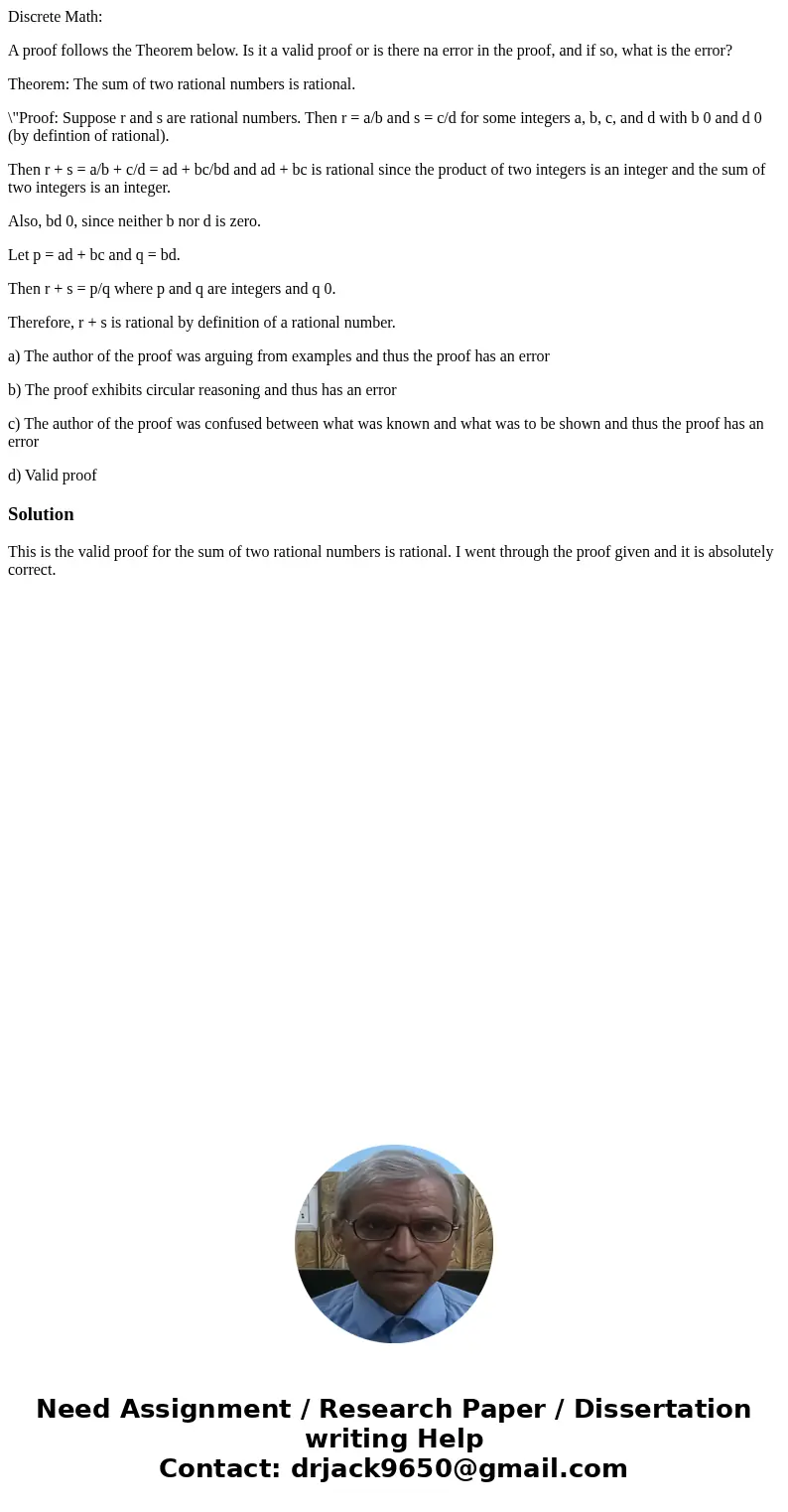Discrete Math A proof follows the Theorem below Is it a vali
Discrete Math:
A proof follows the Theorem below. Is it a valid proof or is there na error in the proof, and if so, what is the error?
Theorem: The sum of two rational numbers is rational.
\"Proof: Suppose r and s are rational numbers. Then r = a/b and s = c/d for some integers a, b, c, and d with b 0 and d 0 (by defintion of rational).
Then r + s = a/b + c/d = ad + bc/bd and ad + bc is rational since the product of two integers is an integer and the sum of two integers is an integer.
Also, bd 0, since neither b nor d is zero.
Let p = ad + bc and q = bd.
Then r + s = p/q where p and q are integers and q 0.
Therefore, r + s is rational by definition of a rational number.
a) The author of the proof was arguing from examples and thus the proof has an error
b) The proof exhibits circular reasoning and thus has an error
c) The author of the proof was confused between what was known and what was to be shown and thus the proof has an error
d) Valid proof
Solution
This is the valid proof for the sum of two rational numbers is rational. I went through the proof given and it is absolutely correct.

 Homework Sourse
Homework Sourse